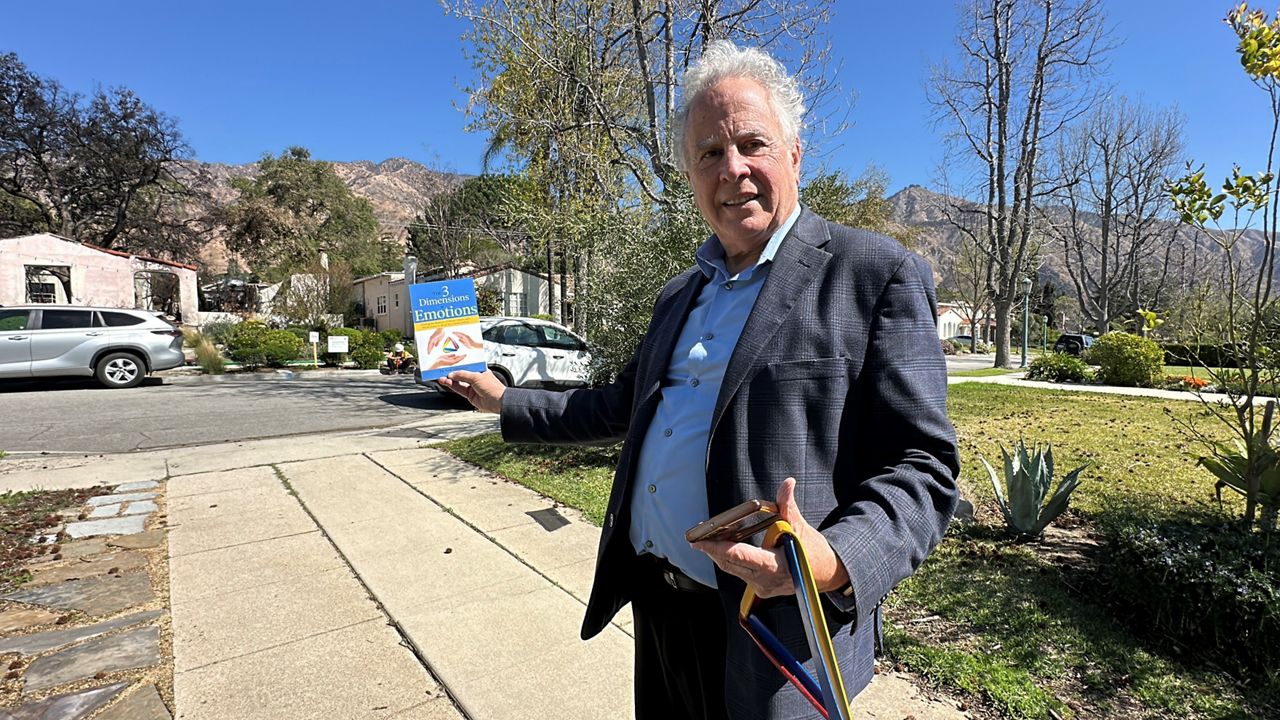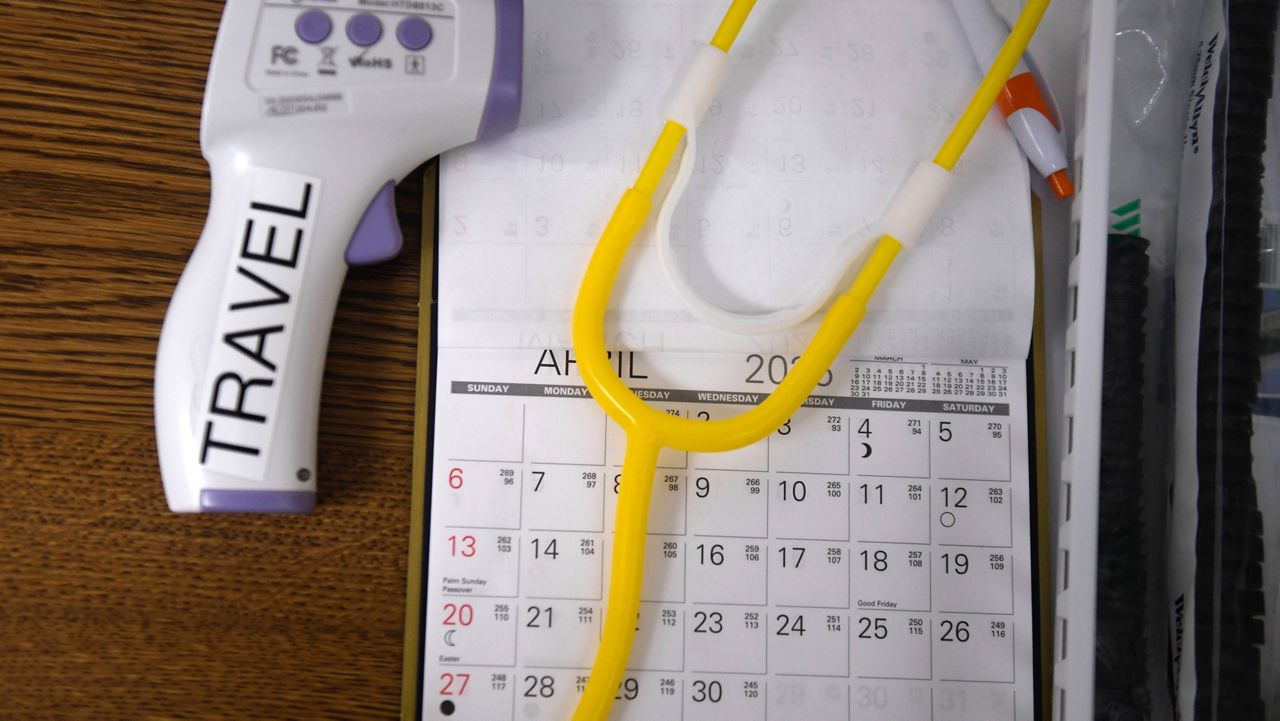LOS ANGELES — Walking into Dr. Sam Alibrando’s house, you would think it’s still January.
The Christmas decorations are frozen in time from the day he and his family evacuated their Altadena home the morning the Eaton Fire broke out.
Despite the soot, smoke and roof damage displacing them, Alibrando is grateful the house is standing, though he shared how there was a moment there that the uncertainty was unbearable.
“We had no idea at that point in time, [a neighbor] said several of the houses are on fire. And I go, 'That could have been one of ours.' It was really, really traumatic at the time,” said Alibrando.
As a psychologist, he said the loss that comes with a disaster of this magnitude goes beyond the tangible.
“After this all happened, I realized I wasn’t concentrating as well when I was driving my car. And I said, 'Oh boy.' That’s when I started doing more meditation,” said Alibrando.
He is now using tools he has developed, like the color coded emotions triangle he wrote a book about, to help him deal with all the found emotions in the aftermath.
“Many of my patients who are affected by this, not all, but we talk about this much. A woman this morning, she — like myself — has not been living in her home," said Alibrando. "She’s been living with a friend for the last month and that gets really stressful no matter how much how good the relationship is. It’s starting to get really stressful for people."
That's why he recommends people pay attention to their own behaviors that may have been triggered.
“One is addictive behaviors," he said. "You may start drinking more, you may be over-eating. People who maybe have been sober for 10 years may be tempted to pick up a glass."

In response, several state legislators, such as Assemblymember John Harabedian, introduced AB 1032 to address the issue.
If passed, insurance companies would be required to cover at least 12 therapy sessions over the course of a year for people impacted by the Los Angeles-area wildfires. The visits are in addition to what Californians are currently entitled to in their current commercial plans.
“A lot of people are resorting to going to clinics where they pay out of pocket or some nonprofit is paying for it," said Harabedian. "But a lot of people are having trouble actually accessing mental health care through their health insurance plans and we thought this needs to be addressed."
The benefits would extend until one year after the emergency declaration is lifted.
Although insurance companies would have to cover the cost, Harabedian believes it would be more cost effective in the long run.
“What are the costs of not actually dealing with these mental health and emotional health issues at this stage and letting it fester for years? And what is that going to do to these victims long term? What’s it going to do to the community as a whole? And so, I think the costs will be borne out, and I think they can be shouldered by the health plans and by the professionals,” said Harabedian.
Living through this disaster, Alibrando agrees saying often stress can manifest in physical health issues.
“If we’re going to give people, you know, 12 sessions with a physical therapist because they tripped when they’re running out of their house on fire, why wouldn’t we give them 12 sessions to help them deal with the trauma, the grieving and the stress?" he said. "Because all those things are going to cause a lot of negative things that can be helped by being able to talk and process it with a professional."
If the bill passes, an urgency clause attached would make it take effect immediately.









